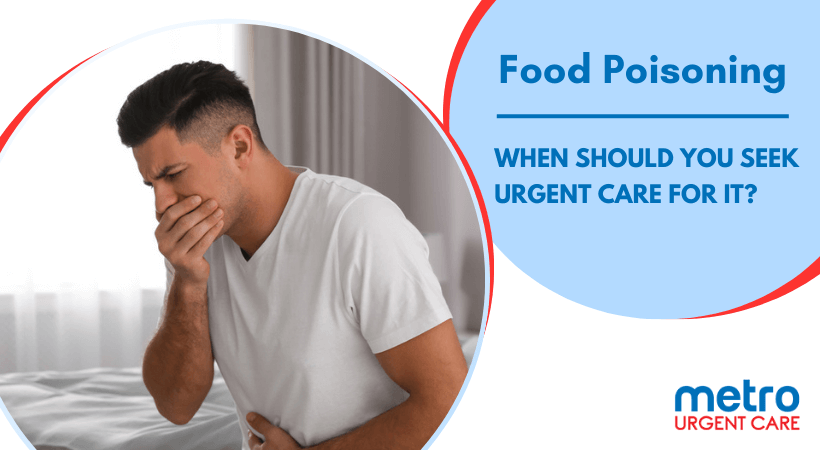


Food poisoning occurs after eating contaminated, toxic, or spoiled food. Often, food poisoning and the stomach flu are used interchangeably, as they both share a few similar symptoms. Nevertheless, they are different conditions. Food poisoning is often caused by bacteria, whereas the stomach flu (gastroenteritis) occurs from a viral infection, making the condition contagious.
Though some people with food poisoning heal without treatment, the seriousness of the illness should not be ignored. The CDC reveals that approximately 48 million Americans are diagnosed with food poisoning every year, and among them, 128,000 people are hospitalized. So, it is crucial to stay safe and get proper medical intervention as soon as you experience food poisoning symptoms.
Food poisoning can occur as a result of consuming microorganisms that contaminate or infect various foods, including:
Your risk for food poisoning may increase if you are:
The incubation period (or the time between exposure to an infection and the onset of symptoms) of food poisoning is anywhere from 30 minutes to 8 weeks, depending on the source of infection, whether bacterial, viral, or parasitical. So, one can experience the symptoms either the same day or over the next few weeks.
Common symptoms of food poisoning include:
Food poisoning can be treated at home or in a hospital, depending on the severity of the condition and symptoms.
If your symptoms are mild and your condition is manageable, you can treat the food poisoning at home by:
Replacing lost fluids and electrolytes is essential to stay hydrated. You should drink either sports drinks, coconut water, or fresh juice, but avoid caffeinated drinks, as they irritate your digestive tract.
Over-the-counter medications such as Pepto-Bismol and loperamide (Imodium) can help subside nausea and diarrhea.
If your symptoms don’t improve with home remedies or if you are older, pregnant, or immunocompromised, you may require medical assistance. Depending on your symptoms and specific causes, your doctor may recommend:
Include antibiotic or antiparasitic depending on the pathogen responsible for your condition.
Usually recommended for cases with severe dehydration.
An antitoxin is administered if infected with C. Botulinum, which is considered a medical emergency.
Along with the medical or at-home treatment, you must get plenty of rest to support your body’s recovery process and ability to absorb fluids.
You must visit your healthcare provider immediately if you experience the following symptoms:
Although food poisoning is not usually life-threatening, leaving it untreated can result in serious complications, such as severe dehydration, meningitis, sepsis, breathing difficulties, etc. So, receive treatment on time to prevent potential complications to effectively protect your health and wellness.
At Metro Urgent Care, we are committed to offering personalized and best-in-class food poisoning treatment in Chicago, IL, and the surrounding areas on all seven days of the week during convenient business hours. Schedule an appointment (to avoid wait times) or stop by our clinic if you need prompt and professional medical assistance for food poisoning.